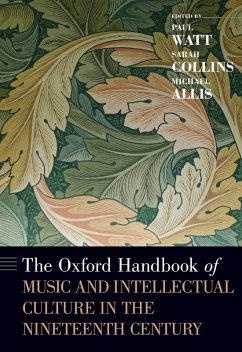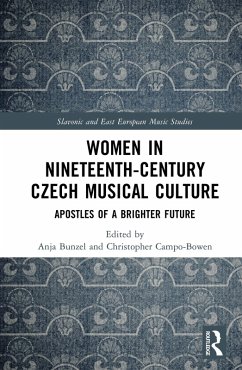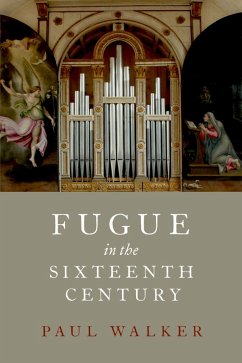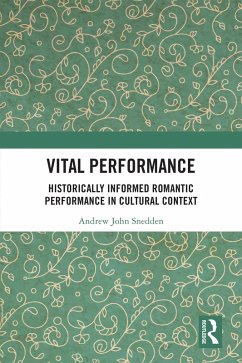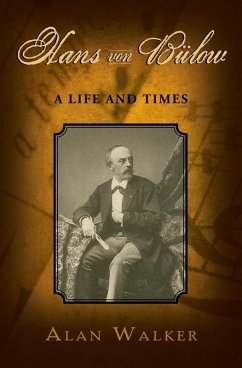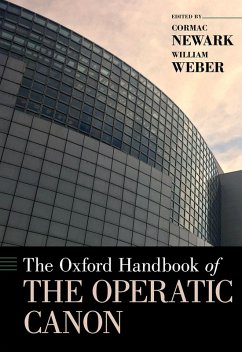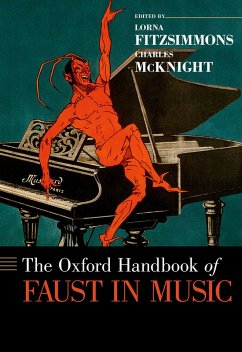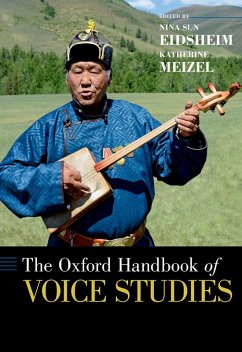
The Oxford Handbook of Music and Intellectual Culture in the Nineteenth Century (eBook, ePUB)
Versandkostenfrei!
Sofort per Download lieferbar
60,95 €
inkl. MwSt.
Weitere Ausgaben:

PAYBACK Punkte
30 °P sammeln!
Rarely studied in their own right, writings about music are often viewed as merely supplemental to understanding music itself. Yet in the nineteenth century, scholarly interest in music flourished in fields as disparate as philosophy and natural science, dramatically shifting the relationship between music and the academy. An exciting and much-needed new volume, The Oxford Handbook of Music and Intellectual Culture in the Nineteenth Century draws deserved attention to the people and institutions of this period who worked to produce these writings. Editors Paul Watt, Sarah Collins, and Michael ...
Rarely studied in their own right, writings about music are often viewed as merely supplemental to understanding music itself. Yet in the nineteenth century, scholarly interest in music flourished in fields as disparate as philosophy and natural science, dramatically shifting the relationship between music and the academy. An exciting and much-needed new volume, The Oxford Handbook of Music and Intellectual Culture in the Nineteenth Century draws deserved attention to the people and institutions of this period who worked to produce these writings. Editors Paul Watt, Sarah Collins, and Michael Allis, along with an international slate of contributors, discuss music's fascinating and unexpected interactions with debates about evolution, the scientific method, psychology, exoticism, gender, and the divide between high and low culture. Part I of the handbook establishes the historical context for the intellectual world of the period, including the significant genres and disciplines of its music literature, while Part II focuses on the century's institutions and networks - from journalists to monasteries - that circulated ideas about music throughout the world. Finally, Part III assesses how the music research of the period reverberates in the present, connecting studies in aestheticism, cosmopolitanism, and intertextuality to their nineteenth-century origins. The Handbook challenges Western music history's traditionally sole focus on musical work by treating writings about music as valuable cultural artifacts in themselves. Engaging and comprehensive, The Oxford Handbook of Music and Intellectual Culture in the Nineteenth Century brings together a wealth of new interdisciplinary research into this critical area of study.
Dieser Download kann aus rechtlichen Gründen nur mit Rechnungsadresse in A, B, BG, CY, CZ, D, DK, EW, E, FIN, F, GR, HR, H, IRL, I, LT, L, LR, M, NL, PL, P, R, S, SLO, SK ausgeliefert werden.




